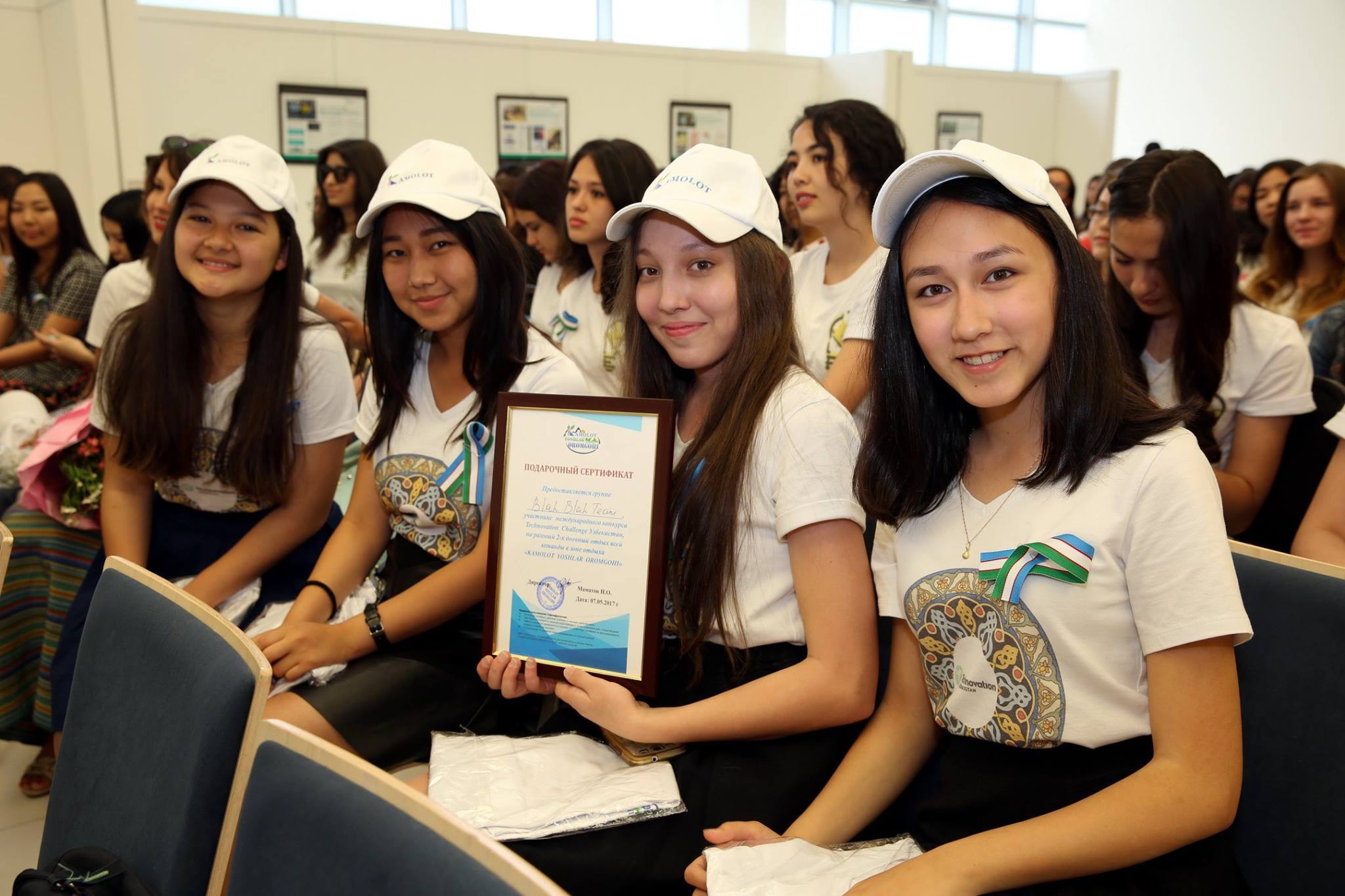--- Image caption ---
Do you know who Margaret Hamilton is?
Not many do. She was the computer scientist and systems engineer who programmed the Apollo 11 spaceflight.
There is currently a greatly untapped resource of women programmers, who are essential to the understaffed global ICT industry (an estimated 800,000 extra professionals will be needed in Europe by 2020). But women programmers, especially those in management roles, make up a small minority of the world’s IT professionals.
The landscape for women programmers is not much different here in Uzbekistan. The share of women in technical universities is only 16-22 percent of the total number of students.
Technovation Challenge
In February 2017, UNDP Uzbekistan and partners conducted a ‘Technovation Challenge’ for young women in Tashkent. More than 100 programmers aged 15-18 attended and were encouraged to create socially-conscious applications. Assisted by women role-model mentors, these programmers created apps addressing a multitude of social concerns such as reducing emissions through taxi sharing, water consumption, waste management, development of volunteerism, online registration for doctor's appointment in hospitals and clinics, and psychological assistance to youth.
The Challenge showed how empowering young girls and women to play innovative roles in the ICT sector is good for gender equality and for the country’s future.
Transforming stereotypes, motivating women
The idea that "it is ‘too hard’ for girls and women" is as outdated as it is offensive, and yet we still hear it. The Challenge shattered this myth, with its participants showing proficiency in both IT and entrepreneurial skills, in both creating and selling ideas.
The Challenge encouraged participants not just to learn new skills in the programming industry, but then to immediately seek to create new solutions with those acquired skills during pitching, demo sessions, and debates.
Originality, inter-personal skills and confidence are all fundamentally important in the ICT sector. Creating a group of talented programmers will help increase the involvement of women in Uzbekistan’s society and industries (a goal laid out in the Uzbekistan Strategy of Action 2017-2021).
Promoting the Sustainable Development Goals and private sector partnerships
Industry has the influence to tackle predominant social issues, like education, health and poverty, which are important elements of 2030 Agenda. Teams addressing these issues were supported by role models – women with careers in Uzbekistan’s growing ICT industry. Participants also visited their companies, building networking skills and strengthening the valuable mentor-mentee connection with women business role models. These are still in place even after completion of the programme.
Already the programme’s Facebook page has received interested messages from almost every region of Uzbekistan. One individual went through the online curriculum on her own and developed a mobile application for senior people, which received a special recognition from the programme’s judges. After the Challenge’s success in Tashkent, the Women's Committee of Uzbekistan and the Association for Support of Children and Families (both original supporters) intend to duplicate it nationwide.
Research shows that narrowing the gap between male and female employment has been a significant factor in economic growth. The Government of Uzbekistan recently issued a resolution on “creating favorable conditions for the creation and development of high-tech industries, further deepening the integration of science, education and production processes”.
We’re looking to help foster those favorable conditions, and support creation of a more equitable landscape for women and economic growth for Uzbekistan. There is no reason why the next Margaret Hamilton or Katherine Johnson cannot be discovered in Uzbekistan.

 Locations
Locations




